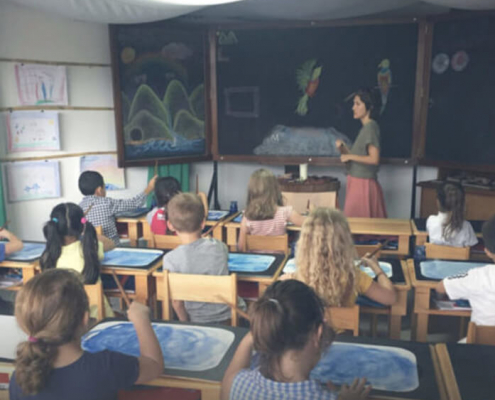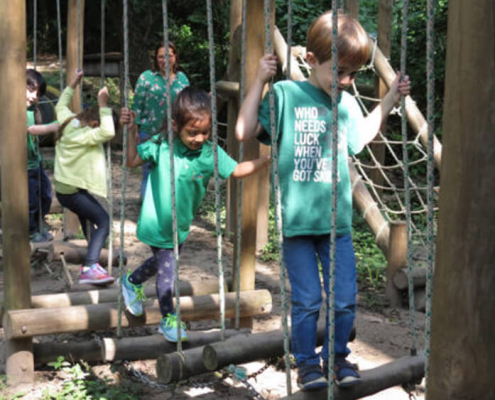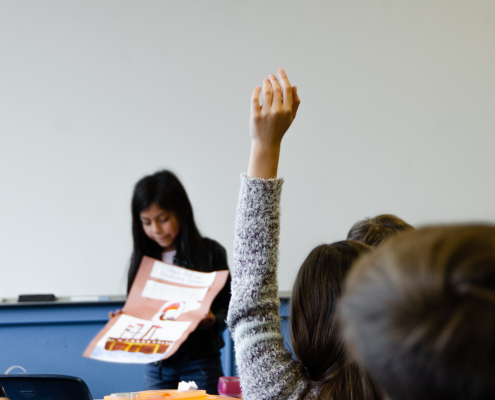Helping the child unfold to the adult they are destined to become
Written by Réne Petersen, Trinus teacher
At the centre of Waldorf Education is a true awareness and respect for child development. We are devoted to ensuring that the developmental needs of the child are met in a healthy, holistic way. A key feature of awareness of child development is an understanding of where the child has come from and where the child is headed. Healthy development- physically, socially, emotionally, academically- in childhood means we give the child the opportunity to unfold into the healthy, balanced, responsible adults they are destined to become.
The Waldorf Curriculum provides many opportunities for children to practise and develop certain characteristics which will serve them well in adulthood.
- Holistic teaching creates greater balance in the human being across every level: Waldorf students are truly educated in a way that appeals to and develops their capacities of thinking, feeling and Will. As such, as adults they can view the world from a more balanced perspective which includes awareness of their inner, feeling, spiritual self.
- The creative arts stimulate the growth of imagination: Here, imagination does not only refer to being creative when it comes to painting or drawing or writing; but also to imaginative thinking. With imaginative thinking we help children think more creatively and flexibly which opens them up to seeing a wider range of possibilities. As adults we are often limited in our thinking as we have become set in familiar/old patterns of thinking. By developing the imagination, we give Waldorf students the opportunity to be adults who are truly able to think creatively on whichever path they choose.
- Waldorf students are encouraged to think for themselves: We often ask children to share their personal opinions and thoughts, as opposed to just telling them the goal/objective of a lesson. In this way we allow children to truly form a connection to the content that is being taught by developing an inner relationship to it. In this way we also grow their motivation to learn and their curiosity and interest in the world as they know that what they say and think is important and meaningful. In this way we grow adults who come to view learning as a personal task full of joy as opposed to something that MUST be done.
- Waldorf students are encouraged to ask questions: Asking questions forms the basis of creating interest, connection and creative thinking. Asking questions encourages children to think for themselves, to speak up for themselves and to express when they do not understand or do not agree with something. As adults, this translates into the ability to think differently, be confident enough to speak up and fosters the culture of being a life-long learner who seeks deeper understanding.
- Waldorf students are given many opportunities to grow their self-confidence: Waldorf students are taught in a way that respects the fact that each child is different and unique. Our task as Waldorf teachers is to help children unfold into who they are- NOT to force them to be something we think is acceptable. In this way each child is met and acknowledged where they are at and in this way they learn that who they are is someone to be treasured and loved. Throughout the school years children are supported in the development of their ego so that as adults they have a healthy functioning ego which serves them and leads them through life from a place of self-awareness, responsibility and love.
These are just a few examples of how we teach with FULL awareness of the adult the child will become. By focusing on child development, and guiding the child through childhood in an age-appropriate and healthy way as Waldorf teachers we hope to equip the child with the capacities needed to be a self-aware, self-confident, responsible, motivated, curious adult who is able to contribute to the world in an authentic, loving way.









